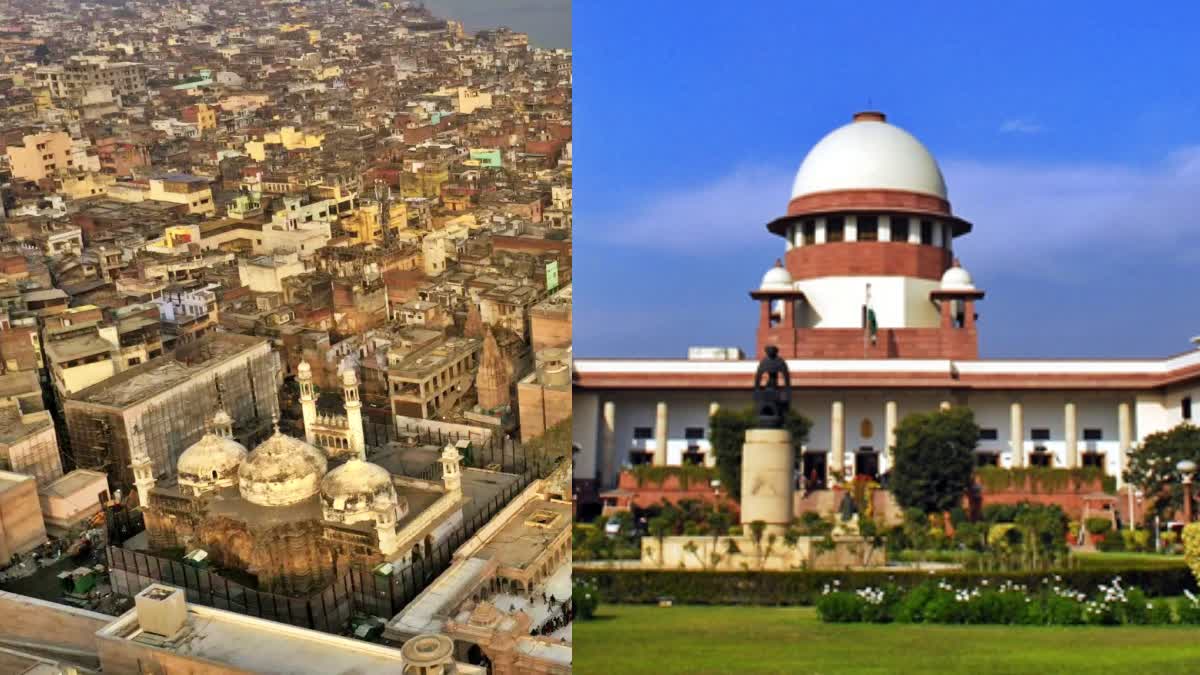New Delhi: The Supreme Court on Monday ordered stayed till July 26 the Varanasi district court order passed on July 21 allowing an extensive survey of the Gyanvapi Masjid by the Archaeological Survey of India (ASI) to ascertain whether the mosque was built over a pre-existing Hindu temple.
The district court had held that the scientific investigation is “necessary” for the “true facts” to come out. A bench headed by Chief Justice of India D Y Chandrachud and comprising Justices J B Pardiwala and Manoj Misra said, "We are of the view that some breathing time should be granted to them to appeal...”
The top court said the Muslim side can move the Allahabad High Court to challenge the district court order and until 5 pm on July 26, the district court order will not be enforced. Senior advocate Huzefa Ahmadi mentioned a plea before the apex court moved by Gyanvapi mosque management committee against the decision of the Varanasi District Court in Uttar Pradesh allowing an application by the Hindu woman applicants seeking a scientific survey of the Gyanvapi mosque premises except for the wuzukhana(chamber for ablution).
Ahmadi vehemently pressed for a stay on the district court order. Solicitor General Tushar Mehta submitted that not a brick has been removed nor is it planned to be removed for at least a week, and added that right now what is going on is measurement, photography, and radar imaging, which will not affect the structure. Ahmadi stressed that what is the tearing hurry now when nothing has happened since 1947, and opposed excavation at the site.
The top court noted that the district court order for the survey was passed on Friday, at 4.30 pm and the applicant should be granted "some breathing time" to pursue their legal remedy before the high court. The top court asked Mehta if he can make a statement that there will be status quo until Friday. Mehta replied that he can't make such a statement, pointing out there is no excavation or invasive method being used for the time being.
Senior advocate Shyam Divan, representing the Hindu petitioners before the apex court, vehemently opposed any status quo by the apex court on the Varanasi court order. The top court, concluding the hearing, said should the petitioner move to the high court, the registrar judicial shall ensure it is placed before a roster so that it is heard before the status quo order ends.
